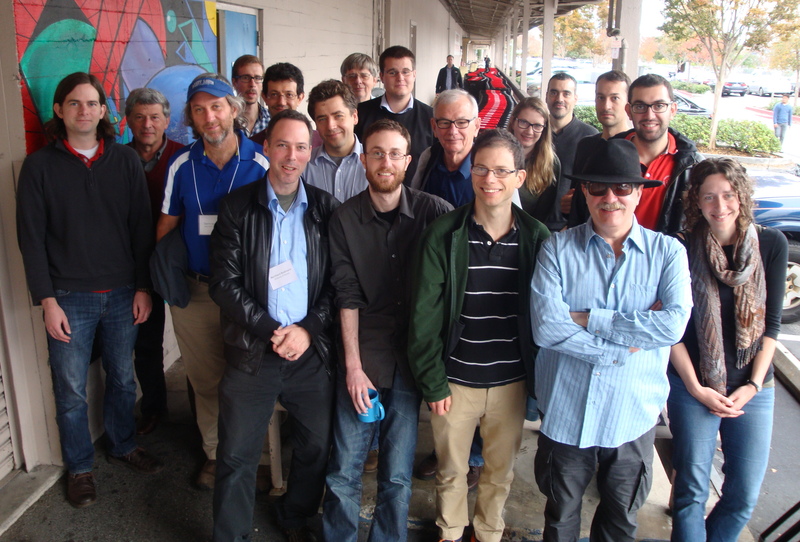Beyond Kadison-Singer: paving and consequences
December 1 to December 5, 2014
at the
American Institute of Mathematics,
San Jose, California
organized by
Bernhard Bodmann,
Pete Casazza,
and Adam Marcus
Original Announcement
This workshop will be devoted to broadening the
recent proof of the Kadison-Singer Problem
and to exploring its consequences. Many experts in the field agree that the
Kadison-Singer Problem has been resolved by the work
of Marcus, Spielman and Srivastava (MSS) through verifying Weaver's equivalent
$KS_2$ conjecture which was shown to
be equivalent to Anderson's paving conjecture. As a consequence, other
equivalent formulations in different fields of mathematics
are now also known to be true. A strong interaction between researchers in the
areas connected by this problem and by its proof
promises to enlarge our understanding and to address further open problems.
Particular topics envisioned for the workshop are the following:
- Find concrete implications of the positive solution to the Kadison Singer
problem in the various areas of research where it has equivalent formulations.
- Find the Anderson paving number for finite Parseval frames with Gram
matrices whose diagonal is bounded by 1/2. From the proof of Kadison-Singer it
is known that there is a universal number r of sets in the partition and it is
also known that r > 2, but MSS currently does not give any direct information on
r.
- Verify the Feichtinger Conjecture directly. This requires generalizing the
MSS proof to infinite systems, including the partitioning of
each unit-norm Gabor frame into a universal number of Riesz basic sequences.
- Fine-tune the proof mechanism developed by MSS and make it as constructive
as possible.
- Improve the required norm bound in the proof by MSS. If possible, show that
given $\epsilon > 0,$ the Gram matrix for any finite Parseval frame whose diagonal
is bounded by $1/2-\epsilon$ can be two-paved. It is known that two-paving with
$\epsilon = 0$ fails.
Currently, the proof of MSS requires the stronger condition that the norms are
bounded by $1-\sqrt 2/2-\epsilon.$
- Find an algorithm that constructs the partition which results from the MSS
proof or show that such a selection would not be achievable
with a polynomial time algorithm.
Material from the workshop
A list of participants.
The workshop schedule.
A report on the workshop activities.
Problem list
Papers arising from the workshop:
Improved bounds in Weaver and Feichtinger Conjectures
by Marcin Bownik, Peter G. Casazza, Adam W. Marcus and Darrin Speegle
Restricted invertibility revisited
by Assaf Naor and Pierre Youssef,
A journey through discrete mathematics, 657–691, Springer, Cham, 2017 MR3726618Detecting Fourier subspaces
by Charles A. Akemann and Nik Weaver,
J. Fourier Anal. Appl. 22 (2016), no. 4, 878-886 MR3528403

